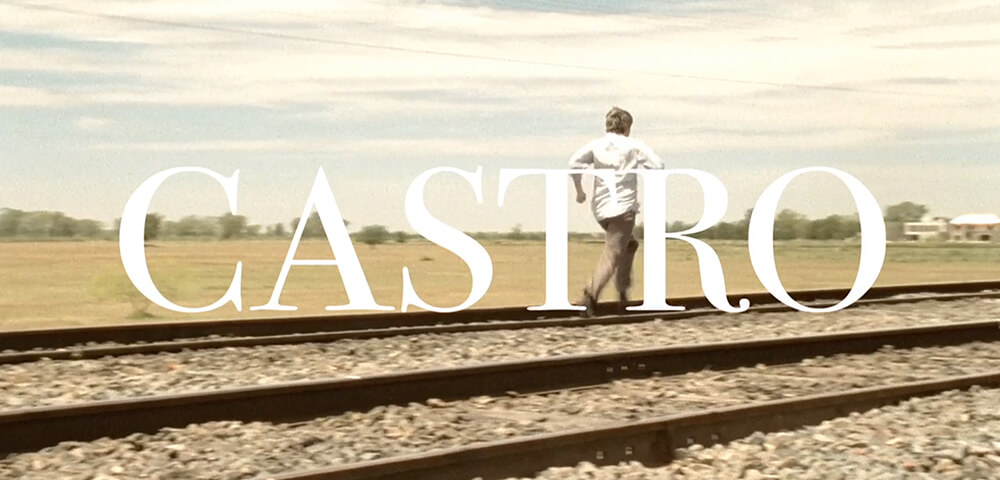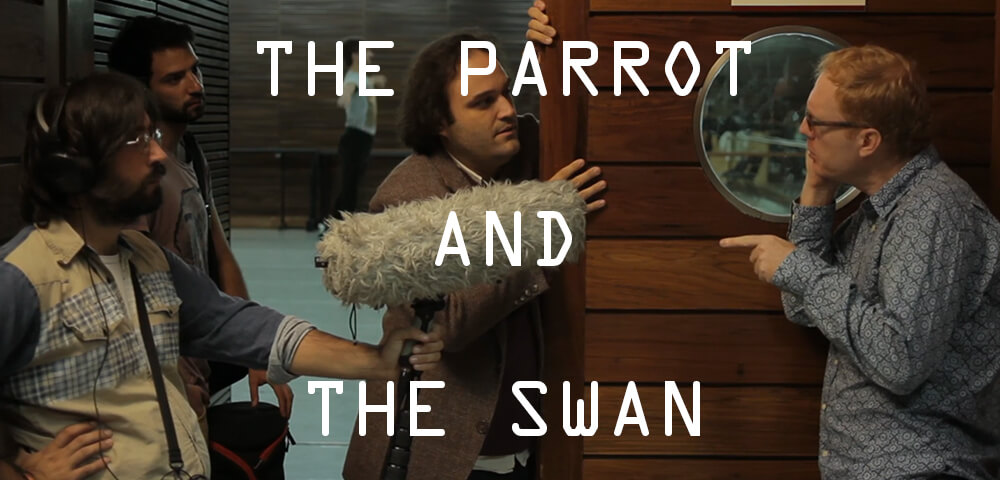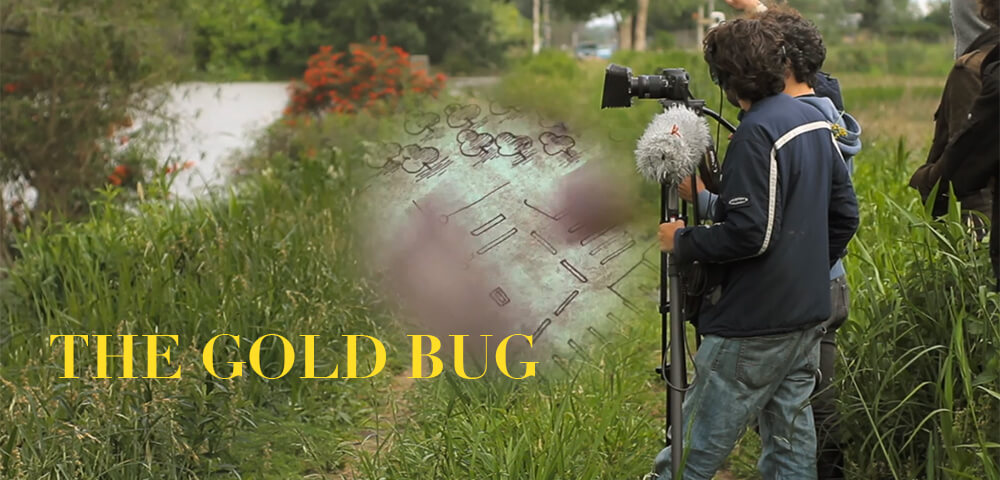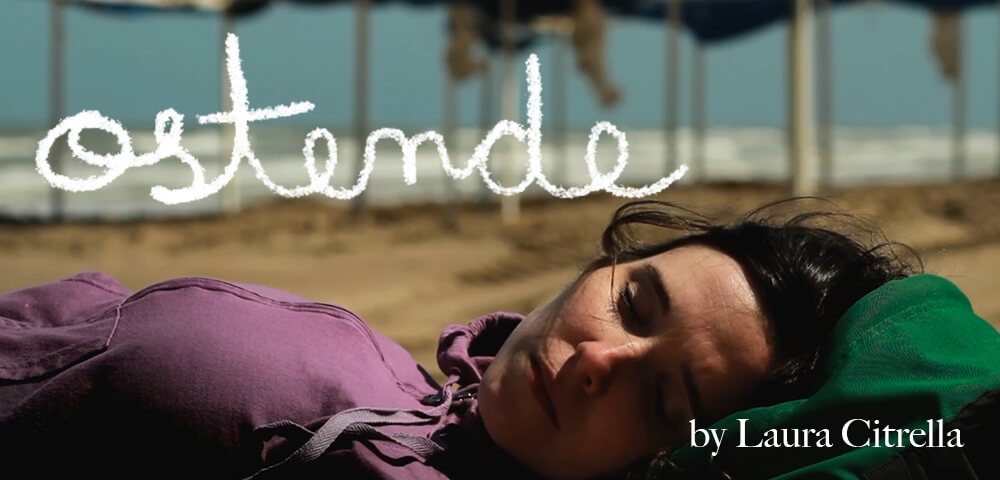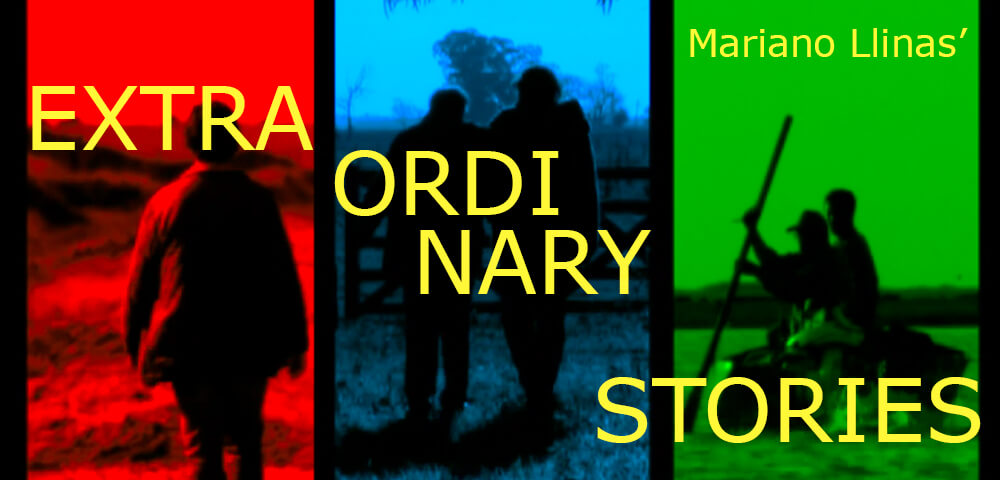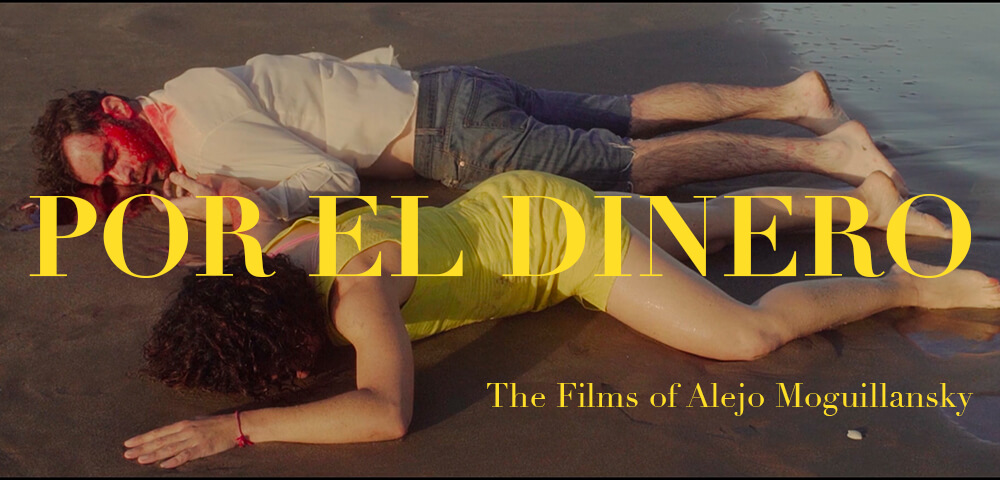
“Your music is not provocative, it is like a game for kids.” – Margarita Fernandez to Helmut Lachenmann, THE LITTLE MATCH GIRL
Wedding narratives stolen from classical fantasy stories (Treasure Island, Swan Lake, Hans Christian Andersen) to documentary-based portraits of artists struggling both creatively and financially, the films of Alejo Moguillansky can be equal parts Marxist and childish. Thriving on a playful dialectical struggle between truth and fiction, reality and fantasy, comedy and tragedy, content and form, aural and visual space – Moguillansky’s films are in a state of constant exploration. From THE PARROT AND THE SWAN – wherein the main character is also the film’s boom operator and the idea of cinematic subjectivity is taken comically new heights – to FOR THE MONEY, where Moguillansky’s real-life entry into a Colombian theater competition is imagined as the harbinger of insatiable greed and, ultimately, his own death – the very process of filmmaking is often the jumping off point for the film itself, leaving the movie to discover and construct its own aesthetic terrain as it unfolds.
In addition to his work as a director Alejo Moguillansky is also one of the founding members of the Argentinian film collective El Pampero Cine with filmmakers Mariano Llinas, Laura Citrella, and Andres Mendilaharzu. Founded on a commitment to independence and collaboration the films of El Pampero are usually produced without institutional financing from grants or government funding using the collective’s own equipment and the founding members of the collective serve in important creative roles on each other’s projects. As part of this series we are proud to show a number of other films which Alejo Moguillansky worked on as an editor – Mariano Llinas micro-budget four-hour long Borgesian epic EXTRAORDINARY STORIES, Laura Citrella’s bitterly funny resort-set noir OSTENDE, and the first two films of Matias Pinero’s Shakespeare series, ROSALINDA and VIOLA. As evidenced by the prominent acting roles often given to his crew members, the films of Moguillansky thrive on collaborative creativity and these films feel as much a part of his body of work as his own.
Due to the number of films we will be screening this series will be split up into two parts. CASTRO, THE PARROT AND THE SWAN, THE GOLD BUG, EXTRAORDINARY STORIES and OSTENDE will play throughout November. Check back in December to catch THE LITTLE MATCH GIRL, FOR THE MONEY, ROSALINDA, and VIOLA.
Co-presented with Cinema Tropical.
CASTRO
dir. Alejo Moguillansky, 2009
85 mins. Argentina.
In Spanish with English subtitles.
SATURDAY, NOVEMBER 6 – 10 PM
SATURDAY, NOVEMBER 13 – 10 PM
THURSDAY, NOVEMBER 25 – 7:30 PM CLOSED
Part Langian conspiracy, part Chaplinesque comedy of work, and part city symphony – Alejo Moguillansky’s CASTRO is filled with a Nouvelle Vague-esque sense of endless playfulness and ingenuity. A mysterious man named Castro (Edgardo Castro) is wandering around Buenos Aires trying hard not to find a job (“Right now I have you, my body, and my head. If I get a job one, two, or three of those things might disappear,” he tells his girlfriend), while a gang of four comical crooks led by Castro’s ex-wife clumsily tail him. Filled with plenty of absurd comic asides (an inane secret code communicated through umbrellas, a mysterious and omnipresent upstairs neighbor who is always heard moving around the apartment, ominous job interviews that venture into the strangely personal); dusty, sun-drenched cinematography; and a silent movie worthy piano score, CASTRO is a startling and surprising debut that oozes charm.
THE PARROT AND THE SWAN
(EL LORO Y EL CISNE)
dir. Alejo Moguillansky, 2013
100 mins. Argentina.
In Spanish with English subtitles.
SUNDAY, NOVEMBER 7 – 5 PM followed by remote Q+A with filmmaker Alejo Moguillansky
(This event is $10.)
SATURDAY, NOVEMBER 13 – 7:30 PM
FRIDAY, NOVEMBER 26 – 7:30 PM
Starting off as a docu-fiction about a film crew making a movie about Argentinian ballet before veering off into a bemusing riff on Swan Lake and eventually settling into a deadpan romantic comedy, THE PARROT AND THE SWAN is continually surprising and filled with a keen sense of fun. Dealing with a rough, hate-mail filled break-up meek sound-mixer, Parrot, finds himself falling in love with a pregnant experimental dancer, Luciana (Luciana Acuna, Moguillansky’s wife) while in the middle of filming a documentary. Boom still in hand, Parrot quits his job and pursues her from crowded, bohemian Buenos Aires flats to odd corners of provincial Argentina.
While an endearing character study at heart, the film seems happiest when headed off into endless digressions like lengthy ballet rehearsals, Freudian dream analysis, and amusing sound jokes centered around Parrot’s refusal to ever put down his boom.
THE GOLD BUG
(EL ESCARABAJO DE ORO)
dir. Alejo Moguillansky, 2014
Argentina, 100 minutes
In Spanish with English subtitles.
SUNDAY, NOVEMBER 7 – 7:30 PM followed by remote Q+A with filmmaker Alejo Moguillansky
(This event is $10.)
THURSDAY, NOVEMBER 11 – 10 PM
SUNDAY, NOVEMBER 14 – 7:30 PM
They all struggle: European Filmmakers vs. South American Filmmakers; Independent Cinema vs. Cinema Funds; Wild vs. Civilisation; North vs. South; Pirates vs. Pirates; An old XIX Century Politician vs. an old XIX Century feminist Poet; Producers vs. Directors; Edgar Allen Poe vs. Robert Louis Stevenson; Long John Silver vs. Captain Smollet; Adventure vs. Money; Beauty vs. Greed; The search of truth and wisdom vs. hypocrisy and wickedness; The rich vs. the poor; Men vs. Women; Fiction vs. Facts. They all struggle, but only one wins.
Commissioned by a Danish film festival as a movie about 19th century feminist poet, Victoria Benidectssen, THE GOLD BUG instead became a literal and figurative adaptation of Robert Louis Stevenson’s classic adventure novel Treasure Island. Moguillansky, producer Mariano Llinas, and actors Walter Jakob and Rafael Spregelburd play themselves in the film as a group of Argentine actors who’ve chanced upon a 17th century treasure map leading to the northern Argentine province of Misiones. using the commission to make a film about Benedictsson as cover, the ensemble sets out to find the buried treasure while convincing the European producers and co-director that their real aim is to also make a biography about 19th-century Argentine political radical Leandro N. Alem, so as to avoid being neo-colonialist. Directly riffing off of the real world circumstances in which the movie itself came into being, THE GOLD BUG is a metatextual questioning of the possibility of filmmaking in a capitalist, Euro-centric film ecosystem.
OSTENDE
dir. Laura Citrella, 2011
85 mins. Argentina.
In Spanish with English subtitles.
SUNDAY, NOVEMBER 7 – 3PM
SATURDAY, NOVEMBER 20 – 5 PM followed by remote Q+A with filmmaker Laura Citrella
(This event is $10.)
SATURDAY, NOVEMBER 27 – 5PM
Thanks to a radio contest, a girl wins four vacation days in a huge hotel in Ostende, in the Buenos Aires province. It’s the low season, and she gets to the place alone. Her boyfriend will join her a few days later. On the beach there’s plenty of sun but also too much wind; and a not very sophisticated bar with a waiter that talks too much. In this place with no obligations or big attractions apart from a windy beach nearby and the not-so-tempting ocean, the girl starts to pay attention – maybe too much, maybe not enough – to the strange behavior of an old man who’s accompanied by two young women. Flirting with both Hitchcock and Rohmer from a light, feminine perspective, Laura Citrella demonstrates the entrancing possibilities of storytelling in her first film.
EXTRAORDINARY STORIES
(HISTORIA EXTRAORDINARIAS)
dir. Mariano Llinas, 2008
242 mins. Argentina.
In Spanish with English subtitles.
SUNDAY, NOVEMBER 28 – 5PM
As though it was a sort of encyclopedia of adventure fiction, this film takes as a start three classically used triggers. One: A man who gets accidentally involved in a case of assassination. Two: another man (a smalltown bureaucrat) who gets obsessed with another man, whose life becomes a crescently problematic riddle. Three: A Jules Vern style challenge takes place in a sort of gentlemen’s club in the deep Argentine countryside; that challenge (a remotely scientific orientated challenge) involves a third man in an unexpected odyssey down a river that run through the lonely plains. Those triggers that, following the path of Borges, combine the universe of Stevenson and the universe of the pampas craft a complex and surreal plot, a plot that somehow includes, in the same Argentine universe, explosions that take place for no one in the middle of the plains, forsaken lions that die in forsaken buildings, remote World War II stories, stories of love and glory, stories of brilliant men and of forgotten men, and those of men both brilliant and forgotten. Hundreds of stories, altogether in a plot that, more than a film, becomes a sort of essay about fiction: How fiction works, where fiction comes from, and what the real purpose of fiction is.

